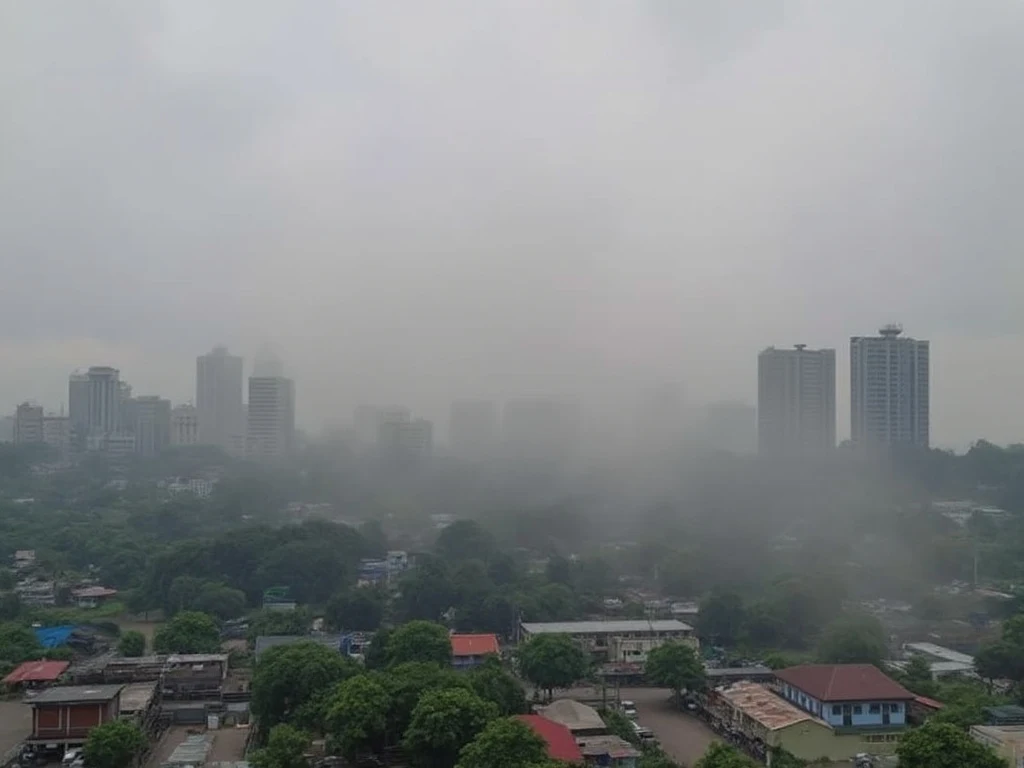The National Building Research Organization (NBRO) has raised concerns over declining air quality in Sri Lanka, particularly in cities like Jaffna and Colombo, where Air Quality Index (AQI) levels have exceeded safe thresholds. Prevailing weather conditions have contributed to this situation, posing potential health risks to residents.
Current Air Quality Status
Recent data from the NBRO indicates that Jaffna recorded an AQI of 130, while Colombo reached 120. Both cities have surpassed the recommended AQI threshold of 50, signaling a need for caution. Meanwhile, air quality in Nuwara Eliya and Badulla remains moderate, indicating less immediate risk but still requiring attention to avoid health concerns.
Health Risks and Advisory
Dr. Ajith Gunawardena, spokesperson for the Central Environmental Authority (CEA), urged those experiencing breathing difficulties to seek medical attention promptly. Vulnerable populations, such as children, the elderly, and individuals with pre-existing respiratory conditions, have been advised to limit outdoor activities in areas with high pollution levels.
Regional Trends and Comparisons
Sri Lanka’s air quality concerns align with trends observed in India, where multiple cities have reported hazardous AQI levels due to weather patterns, industrial emissions, and vehicle pollution. This shared regional challenge underscores the importance of collaborative efforts to address air pollution effectively.
Environmental and Health Impacts
Declining air quality significantly impacts health, increasing the risk of respiratory and cardiovascular diseases, particularly due to exposure to fine particulate matter such as PM2.5 and PM10. The environmental effects include degraded soil and water quality, loss of biodiversity, and reduced agricultural productivity. Elevated pollution levels also exacerbate global warming through greenhouse gas emissions. In addition, reduced visibility caused by high pollution levels disrupts transportation and affects tourism-dependent economies.
Measures and Call for Action
Authorities emphasize the need for immediate and long-term measures to combat air pollution. Reducing vehicle emissions through the adoption of public transportation and carpooling, enforcing stricter industrial emission controls, and increasing green cover through tree planting are among the suggested strategies to improve air quality.
Conclusion
The deteriorating air quality in Sri Lanka highlights an urgent need for action to protect public health and the environment. Continuous monitoring, public awareness campaigns, and regional cooperation will be essential to mitigating the far-reaching effects of air pollution.







No comments